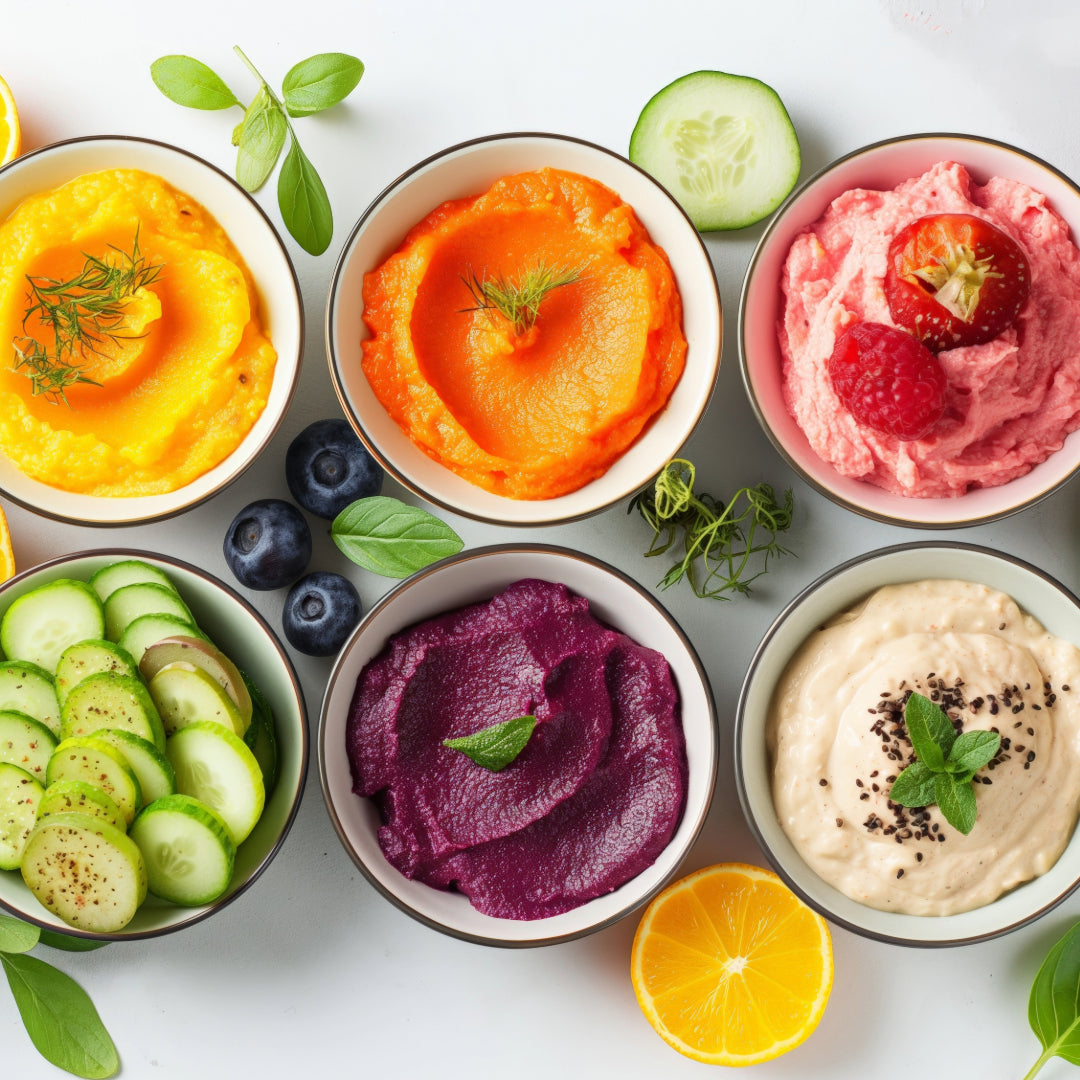
Whey Protein vs. Plant Pea Protein: Which is Better for Your Fitness Goals?
WHAT IS WHEY PROTEIN POWDER AND WHAT IS PLANT PEA PROTEIN?
The journey towards achieving peak physical fitness and health is paved with numerous dietary choices, among which protein plays a pivotal role. As the building block of muscle, protein is essential for repair, growth, and maintenance, making it a critical component of any fitness regime. However, the source of this protein has been a topic of much debate among fitness enthusiasts and health professionals alike. The discussion often centers around two primary sources: whey protein, known for its rich amino acid profile and rapid absorption, and plant protein, celebrated for its dietary inclusivity and environmental sustainability.
The Ongoing Debate: Whey protein vs. Plant-based Protein
This ongoing debate between whey and plant-based proteins is not just a matter of nutritional preference but also involves considerations of dietary restrictions, lifestyle choices, and environmental impact. Whey protein isolate, derived from milk, is a complete protein containing all nine essential amino acids necessary for muscle repair and growth. It has been the go-to choice for athletes and bodybuilders for decades. On the other hand, pea protein powder, sourced from various legumes, grains, and seeds, offers a viable alternative for those pursuing a vegan or vegetarian lifestyle, as well as for individuals with dairy intolerances or those looking for a more eco-friendly protein option.
Purpose of the Article
The purpose of this article is to delve into the nuances of whey vs plant proteins in the context of fitness goals. We aim to compare their nutritional profiles, digestibility, impact on muscle growth and recovery, and overall health benefits. Whether you're an athlete, a fitness enthusiast, or someone simply looking to improve your dietary habits, understanding the differences between these two protein sources can help you make informed decisions that align with your health objectives and lifestyle preferences.
Understanding Proteins
What Are Proteins and Their Role in the Body?
Proteins are large, complex molecules that play a crucial role in the body's function and structure. Composed of amino acids, they are essential for the growth, repair, and maintenance of all body tissues, including muscle, bone, skin, and hair. Proteins also serve vital functions in enzyme production, hormone regulation, and immune response, making them indispensable for health and fitness. The body's ability to perform high-intensity workouts, recover from exercise, and build muscle mass is significantly influenced by protein intake, underscoring its importance in fitness regimes. Muscle protein synthesis (MPS) is also the metabolic process that describes the incorporation of amino acids into bound skeletal muscle proteins.
Complete vs. Incomplete Proteins
Not all proteins are created equal. They can be classified into two categories: complete and incomplete proteins. Complete proteins contain all nine essential amino acids that the body cannot synthesize on its own and must obtain from food. Typically found in animal products and whey protein supplementation, they are pivotal for muscle repair and growth. On the other hand, incomplete proteins lack one or more of these essential amino acids. Most plant-based proteins fall into this category, although combining different plant sources can provide a complete amino acid profile. Understanding the difference between these types of whey proteins is essential for tailoring a diet that meets your fitness and health goals, especially when considering the sources of protein that best suit your lifestyle and dietary preferences.
Whey Protein Explained
What is Whey Protein and Its Source?
Whey protein is a high-quality, complete protein naturally found in milk. It is a by-product of the cheese-making process, where enzymes are added to milk, causing it to separate into solids (curds) and liquid (whey). This liquid whey is then processed and dried into a powder form, creating whey protein supplements. Known for its excellent amino acid profile, whey protein contains all nine essential amino acids necessary for human health, making it an ideal supplement for muscle synthesis and recovery.
Benefits of Whey Protein for Fitness
Whey protein is renowned for its benefits in muscle growth, recovery, and weight management. Its high leucine content, a critical amino acid for protein synthesis, makes it exceptionally effective for building muscle mass. Whey protein is also rapidly absorbed by the body, ensuring quick delivery of nutrients to muscles post-exercise, which aids in recovery and reduces muscle soreness. Additionally, whey protein can help in weight management by promoting satiety and increasing metabolism, making it a valuable tool for those looking to lose weight or maintain a healthy body composition.
Potential Downsides and Considerations
Despite its numerous benefits, whey protein may not be suitable for everyone. Individuals with lactose intolerance or milk allergies might experience digestive issues, such as bloating or gas, when consuming whey protein, particularly concentrates that contain higher lactose levels. Whey isolates and hydrolysates are processed to remove most of the lactose and may be better tolerated. Additionally, there is a misconception that excessive whey protein intake can lead to kidney damage or osteoporosis, but these concerns are largely unfounded for healthy individuals. However, it's always advisable to consume whey protein within recommended guidelines and consider dietary balance and personal health conditions.
Plant-Based Protein Powder Explained
What is Plant Protein and Its Common Sources?
Vegan protein powder refers to protein that comes from plant sources such as peas, rice, quinoa, hemp protein and soy protein. These sources are increasingly popular among those following vegan, vegetarian, or plant-based diets. Unlike animal proteins, these type of protein powder can come from a variety of sources, each with its unique nutritional profile, offering a wide range of vitamins, minerals, and other beneficial compounds in addition to protein.
Benefits of Plant Protein
The benefits of plant protein extend beyond muscle building and recovery. For those following a vegan or vegetarian lifestyle, plant proteins provide an essential source of amino acids. They are also associated with a lower environmental impact compared to animal-based proteins, contributing to sustainable dietary practices. Beyond fitness, plant proteins can offer health benefits such as improved heart health, better weight management, and a lower risk of certain diseases. Their high fiber content can also promote better digestion and satiety.
Addressing Concerns and Misconceptions
A common concern about plant proteins is their incomplete amino acid profile. While it's true that many plant proteins do not contain all nine essential amino acids, this issue can be easily addressed by consuming a variety of plant-based protein sources. Another misconception is about their digestibility; however, most people can digest plant proteins well, and techniques such as fermentation or sprouting can enhance this. The key is to plan a diverse and balanced diet that ensures all nutritional needs are met.
Comparing Whey Protein and Pea Protein
Nutritional Value
- Whey Protein: Contains all nine essential amino acids, making it a complete protein. It's also rich in BCAAs (branched-chain amino acids), which are crucial for muscle building.
- Plant Protein: Depending on the source, it may not always contain all essential amino acids. However, combining different plant proteins can provide a complete amino acid profile.
Absorption and Digestibility
- Whey Protein: Known for its rapid absorption, making it ideal for post-workout recovery.
- Plant Protein: Generally absorbed more slowly than whey, which can be beneficial for sustained energy and may improve gut health due to higher fiber content.
Impact on Fitness Goals
- Whey Protein: Excellent for muscle growth, recovery, and weight loss due to its high leucine content and fast absorption rate.
- Plant Protein: Can also support muscle growth and recovery, especially when a variety of sources are consumed to ensure a complete amino acid profile. Often associated with additional health benefits like lower risk of heart disease.
Environmental Sustainability
- Whey Protein: Dairy production has a higher environmental footprint, contributing to greenhouse gas emissions, water use, and land use.
- Plant Protein: Generally more sustainable than animal-based proteins, with a lower impact on the environment.
Cost
- Whey Protein: Prices can vary, but it is often more affordable due to its widespread availability and production scale.
- Plant Protein: Costs can be higher for certain sources, but prices are decreasing as demand increases and production methods improve.
How to Choose the Right Protein source for Your Fitness Goals
Choosing the right protein supplement is a critical decision that should align with your personal health goals, dietary preferences, and lifestyle factors. Whether your aim is muscle growth, weight loss, or maintaining a healthy diet, understanding the differences between whey and pea proteins can help you make an informed choice that supports your fitness journey.
Assessing Personal Health Goals and Dietary Restrictions
Begin by evaluating your specific fitness goals and any dietary restrictions you may have. For instance, if you're aiming for quick muscle recovery post-workout, whey protein concentrate might be more beneficial due to its rapid absorption rate. Conversely, if you have lactose intolerance or a dairy allergy, plant-based proteins could be a better option. Additionally, consider any other health conditions that might influence your protein choice, such as kidney health or dietary sensitivities.
Considering Lifestyle Factors
Your lifestyle choices, such as following a vegan or vegetarian diet, can significantly influence your protein supplement decision. Plant proteins are ideal for those adhering to plant-based diets, offering a sustainable and ethical alternative to animal-derived proteins. Moreover, if environmental sustainability is a priority for you, plant-based proteins generally have a lower environmental impact compared to whey protein, making them a more eco-friendly choice.
Ultimately, the decision between pea protein and whey protein should consider a balance between nutritional benefits, personal health considerations, and ethical or environmental values. By taking into account these factors, you can select a protein source that not only supports your fitness goals but also aligns with your overall lifestyle and values.
Incorporating Protein Supplement into Your Diet
Incorporating protein into your diet is essential for achieving and maintaining your fitness goals. Whether you prefer whey protein or plant protein, there are numerous ways to integrate these supplements into your daily meals and snacks. Here are some practical tips and recipe ideas to help you boost your protein intake.
Practical Tips for Integrating Protein
- Add grams of protein powder to smoothies or shakes for a quick and nutritious post-workout recovery drink.
- Include a scoop of protein powder in your morning oatmeal or pancake batter to start your day with a protein boost.
- Use amount of protein powder as a base for homemade protein bars or energy balls, perfect for on-the-go snacking.
- Mix protein powder into yogurt or cottage cheese for a high-protein dessert or snack.
Recipe Ideas
- Whey Protein Pancakes: Combine whey protein powder, eggs, banana, and oats in a blender for a healthy and filling breakfast option.
- Plant Protein Buddha Bowl: Assemble a bowl with quinoa, mixed greens, roasted vegetables, chickpeas, and a sprinkle of hemp seeds. Dress with a tahini-lemon dressing for a delicious and nutritious meal.
- Protein Smoothie: Blend your choice of protein powder with almond milk, frozen berries, a handful of spinach, and a tablespoon of flaxseed for a powerful smoothie that's perfect any time of day.
- Protein Energy Balls: Mix plant protein powder with oats, peanut butter, honey, and dark chocolate chips. Roll into balls and refrigerate for a tasty and energizing snack.
By incorporating these tips and recipes into your diet, you can easily increase your protein intake, supporting your fitness goals whether you're looking to build muscle, lose weight, or simply maintain a healthy lifestyle. Remember, the key is to choose high-quality protein sources that align with your dietary preferences and health objectives.
Conclusion
Throughout this article, we've explored the nuanced differences between whey protein and plant protein, covering aspects such as nutritional value, absorption and digestibility, impact on fitness goals, environmental sustainability, and cost. The key takeaway is that both whey and plant proteins have their unique benefits and potential drawbacks, making them suitable for different individuals based on their fitness goals, dietary preferences, and lifestyle choices.
Choosing the right protein source is a personal decision that should align with your health objectives, whether you're looking to build muscle, lose weight, or simply maintain a balanced diet. It's important to consider factors such as dietary restrictions, lifestyle practices like veganism, and environmental concerns when making this choice.
We encourage readers to experiment with both types of protein to discover what works best for their body and fitness regimen. By trying different protein sources and integrating them into various meals and snacks, you can find the optimal balance that supports your health and fitness goals.
Your journey towards optimal health and fitness is unique, and the choice between whey and plant protein should reflect your personal needs and values. We invite you to share your experiences and preferences regarding whey and plant proteins in the comments. Your insights could help others in their quest for the best protein source for their fitness journey.
Don't hesitate to experiment and share your findings. And for more health and fitness tips, consider subscribing to our newsletter. Let's continue to learn and grow together in our fitness journeys.









